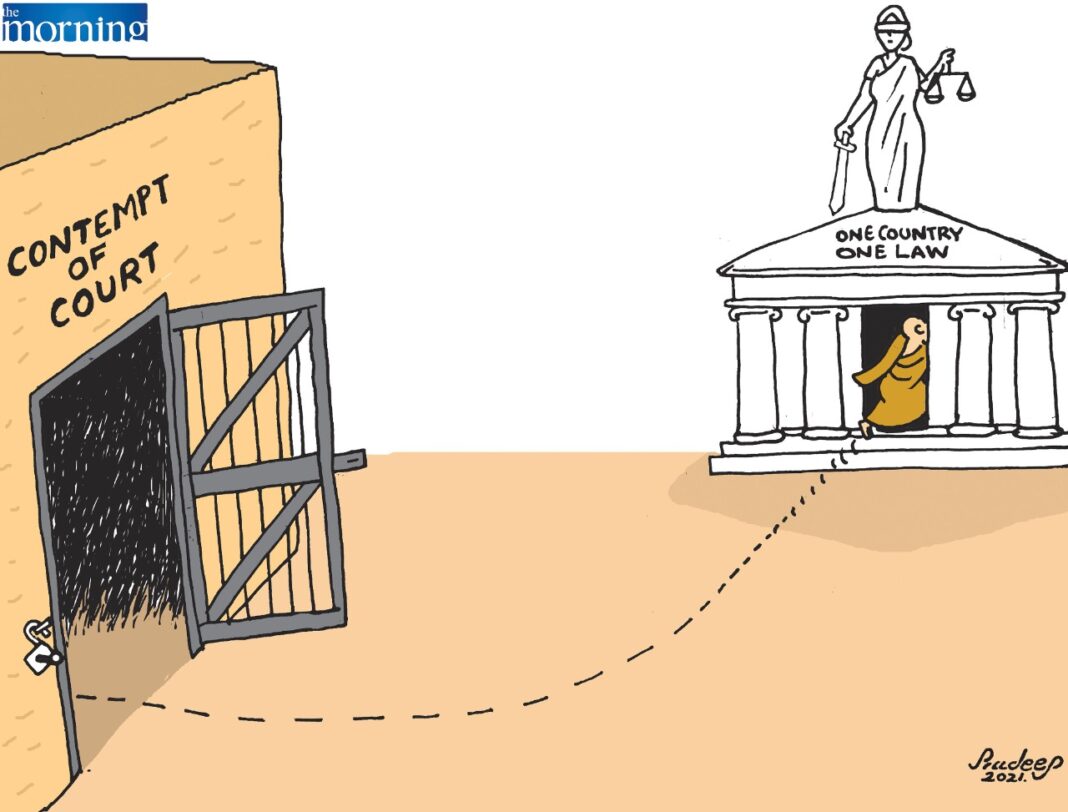The Centre for Policy Alternatives (CPA) is deeply shocked and disturbed by the appointment of the latest Presidential Task Force mandated to implement the ‘One Country, One Law’ concept, including the drafting of a law to give effect to it, headed by Galagodaaththe Gnanasara Thero. The appointment of the Task Force at a time of unprecedented economic hardships and unravelling of government policies raises a plethora of questions including the compounding of a culture of governance by task forces, the promotion of divisive Buddhist clergy linked to incitement of violence and attacks against religious minorities; all of which entrench impunity.
CPA further notes that the phrase ‘One Country, One Law’ – widely deployed in the run up to and during the 2019 Presidential election, has a very specific majoritarian connotation, and is by no means an expression of a desire for equality or the equal protection under the law. Rather, the advocates of the phrase deliberately distort Sri Lanka’s legal history and legal system, and promote a false narrative of a legal system which benefits minorities and hark to a mythical time where Sri Lanka was governed by “one legal system”.
CPA notes that there are many aspects of the Sri Lankan legal system including aspects of personal laws, which do not meet the human rights standards guaranteed in Sri Lanka’s constitution or Sri Lanka’s international obligations. A serious attempt to bring these laws in line with these human rights obligations would require a genuinely representative and consultative process led by persons with the integrity and capacity to do so. This task force is the antithesis of such a genuine and inclusive approach and CPA calls on the government to immediately rescind the relevant Gazette notification.
CPA has previously raised concerns over the government’s reliance on multiple ad hoc structures, established since 2020, that supersede existing institutions and mechanisms. The vaguely termed mandate of this Task Force compounds fears regarding transparency and accountability, and raises further worrying questions about its implications for the ongoing legal reform processes in Sri Lanka.
Further, CPA notes that Galagodaaththe Gnanasara Thero is an unapologetic champion of ethno-nationalist rhetoric and hate speech against the Muslim community in particular, with no known action taken to independently investigate or hold him to account.
Moreover, the Thero was convicted for contempt court for his unruly behaviour in the Homagama Magistrate Court when he intimidated the Magistrate and insulted a State Counsel, a sign of his complete disregard for the rule of law in Sri Lanka. In another blow to the rule of law, the Thero was granted a Presidential Pardon in 2019, a move challenged by CPA in the Supreme Court.
We reiterate our belief that providing any space for such a figure is a blatant mockery of basic decency in governance and a clear indicator of a very divisive public policy agenda. He is totally unsuited to perform any role in governance, let alone law reform in Sri Lanka. Thus, the present move must be democratically countered.
Inability or unwillingness to immediately stop such action will only fast track Sri Lanka’s slide towards majoritarian authoritarianism backstopped by militarization of government and governance, with deeply alarming consequences for Sri Lanka and Sri Lankans.
